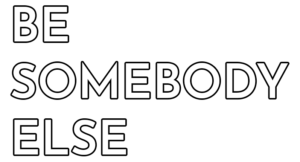I’ve written about being at the centre of your own solar system somewhere else, but a talk I listened to at the weekend made me think about it again. Think about the relationships in your life and how intensely you’d cling on to whatever they contain. That clinging involves the stuff of Panksepp’s emotional instincts. Life, it seems, depends on how we respond affectively, our emotions guiding our thoughts towards ‘what supports out survival and detracts from our survival’.
Struggles with intensity
That’s what this blog is about. I could have called it ‘struggles with intensity’, those struggles meaning whether or not you get stuck. As an EMDR therapist I spend every working day experiencing the extraordinarily different ways in which people react to intense or diminished feeling. Sometimes they might call this an emotion, the subjective way of categorising feeling that we assume everybody is broadly aligned to. Other times they might only be able to draw attention to some kind of sensation in their body that feels out of place. EMDR, according to Francine Shapiro’s AIP (advanced information processing) model, is an excellent way of getting unstuck.
Going back to those relationships in your life, ask yourself: what do you do to cling on to them? Pathological clinging, as the Buddha pointed out, is not a blast.
Your own solar system
Draw yourself a map of your own ‘solar system’ like the one below and see what it looks like when you rate your relationships in terms of uncomfortable intensity. It’ll give you a good idea of how stuck you are and maybe where the main sticking points are. You’ll be looking at symptoms, of course, but go with that. Look into those relationships and see what causes conflicts.

In this example there are a number of what feel like stable relationships. As life goes on, day to day, there may be good and bad moments but the relationship feels consistent (it has a predictable orbit). Whatever’s included feels at a similar level of intensity. The volatile relationships, however, veer between being very close up and very distant. Think about what that looks like as an orbit and imagine the havoc that would cause in any solar system.
Havoc in your life
A scenario like this will be causing havoc in your life. What kinds of compromise might lead to work feeling suffocating or barely there? Is this person unable to press for a promotion because they cannot assert themselves? Maybe they perform their duties extremely well in the hope they might ‘care’ their way there. A conflict like this, in which CARE supersedes RAGE (well, the lowest levels of it!) is very common. It might be the result of having an angry or a passive parent. Is this you? Are you known to CARE really hard? Do you often feel unrewarded, abandoned, and frustrated?
Study your own map and look for what doesn’t feel real. Or are there relationships where important things don’t get said? That’s unreal. Life will be being lived without attention to the whole story. Sometimes this is essential but often it’s not. It’s a big part of why someone like you gets stuck.
Homeostasis
At the bottom right corner of the illustration the are the words ‘HOMEOSTASIS’ and ‘ENTROPY’. Don’t worry too much for now about these: they refer to a clinical way of approaching life. Imagine, though, that your emotions are there to help you achieve a state of homeostasis where you aren’t running down your battery all of the time. Living an unreal life is one of the most depleting things you can do. Conflicts never get dealt with because they are not acknowledged.
Look to be as real as possible and you will resource yourself. You will be far less likely to get stuck.
Satellite of Love
What’s all this got to do with Satellites of Love? All love is narcissistic. Satellite of Love is a beautiful, soulful Lou Reed song that says something about the strangeness of this and everything I’ve tried to include here. It’s a song that spills over into things that feel impossible to get hold of or understand. David Bowie produced it with Mick Ronson (who also plays guitar on the song) but Mick Ronson never received any credit.
All of this: all the stuff of relationships and a reason for me to (narcissistically) include this (thanks to my babysitter, a very good relationship, it’s among my earliest memories). Better have this, too.
When it’s not part of a living nightmare narcissism can be the gift that keeps giving.

